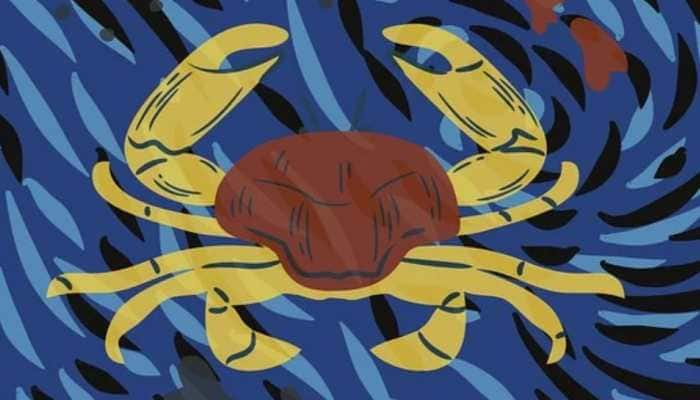Opinion: India's Growing Acceptance Irks China As Beijing Accuses New Delhi Of Hegemonic Mentality, Lack Of Confidence
China is blinded by its hate and encroachment policy against India that was visible during PLA-led conflicts at Doklam, Pangong Tso, Kugrang Valley, Galwan Valley, the Depsang Bulge area, Gurung Hill and Reqin La.
Trending Photos
)
A day after saying that Beijing has never asked the Maldives to go against India and seeking trilateral cooperation among China, India and Maldives, China today accused India of 'hegemonic mentality' and 'lack of confidence' among some of its leaders. Two separate opinion pieces in the state-run Global Times led anti-India rhetoric once again. In an opinion piece titled 'Sri Lanka’s reported denial of Chinese research vessel only proves India’s domineering diplomacy toward neighbours', the Global Times said that New Delhi's latest message indicates that the 'Indian Ocean belongs to India alone'.
China's remarks came in response to Sri Lanka's denial to allow Chinese survey vessels within its Exclusive Economic Zone in the Indian Ocean. Sri Lanka took the decision after Prime Minister Narendra Modi's request urging President Ranil Wickremesinghe to respect Indian strategic and security concerns during a meeting on July 21. The decision may have foiled China's plan to use the maritime survey vessel for future operations of the Chinese Navy in the Indian Ocean and it's normal for Beijing to get irked seeing India's growing credibility. China's frustration can be understood easily from the text of the said opinion piece in the Global Times which reads, "The only answer seems to be India's regional hegemonic mentality. India views the Indian Ocean as its inland sea, sphere of influence, and backyard. Out of this mind-set, India disregards the interests and normal cooperation of other countries, and interferes in the decisions of other sovereign countries whenever possible, all to prove one thing - South Asia is India's turf, and China, which India views as an imaginary enemy, should stay away. It is now the 21st century, yet India's mindset remains stuck in the Cold War era."
Quoting a Chinese research fellow, the opinion also alleged that the US move to promote the Indo-Pacific Strategy and India's participation in the Quad has made New Delhi's 'hegemonic mentality' increasingly stronger.
The research fellow went on to say that India's long-standing hegemonic mentality in South Asia is sometimes referred to as India's 'Monroe Doctrine' — an idea of having an exclusive sphere of influence in and around the Indian subcontinent. He claimed that South Asian countries and India's neighbours are not happy with New Delhi's 'arrogance and domineering diplomacy'.
In another opinion piece titled 'China-Maldives relations expected to reach new heights', the Global Times said that interpreting Muizzu's China visit as being pro-China reflects the lack of confidence among certain Indian politicians. It said that the bilateral relations between China and the Maldives are expected to reach new heights with President Mohamed Muizzu's state visit to Fujian Province. The article also invoked Muizzu's support for the Belt and Road Initiative that India has opposed citing its passage through the Pakistan Occupied Kashmir. "China encourages and welcomes more countries, including India, to engage in collaboration with the Maldives," said the Global Times.
Citing Chinese analysts, the Global Times wrote that India's strained relations with certain countries in South Asia can be attributed to 'its perception of being the regional boss'. "Instead of shifting blame to China, India should take a moment to reflect on its policies toward its neighbours and abandon the zero-sum mentality," it said.
The Chinese analyst said that India is a significant country to the Maldives and New Delhi's current nervousness about President Muizzu's visit to China unveils its lack of confidence. The analyst said that as a major country in the region, 'India should be more magnanimous'.
According to experts, while China tried to get away by accusing India, it conveniently tried to ignore or forget that be it Sri Lanka or Maldives, India has been the first responder in times of crisis. It was India, not China, that first backed Sri Lanka during the recent financial crisis and debt restructuring. In a recent interview, former Maldives Minister Mariya Ahmed Didi said that India has been the '911' for Male. This shows that India has always tried to help its neighbours overcome any challenges and emerge stronger and stable. This has been the stand of the Modi government under the 'Neighbourhood First' policy.
However, China, a country that has been at odds with its neighbours be it India, Bhutan or Taiwan, fails to digest the friendly cooperation between New Delhi and its key neighbours. China is blinded by its hate and encroachment policy against India that was visible during PLA-led conflicts at Doklam, Pangong Tso, Kugrang Valley, Galwan Valley, the Depsang Bulge area, Gurung Hill and Reqin La. Recently, new satellite images indicated the staggering pace at which China continues to illegally encroach into Bhutan's northeast region along a river valley in Beyul Khenpajong by constructing townships. China's conflict with Taiwan, Japan, Vietnam and also related to the South China Sea is not hidden from anyone. Experts believe that it's high time that Beijing understands that neighbours are meant to support each other and not encroach upon other's land, a policy closely pursued by China against its all neighbours.
Live Tv







)
)
)
)
)
)
)
)
)
)
